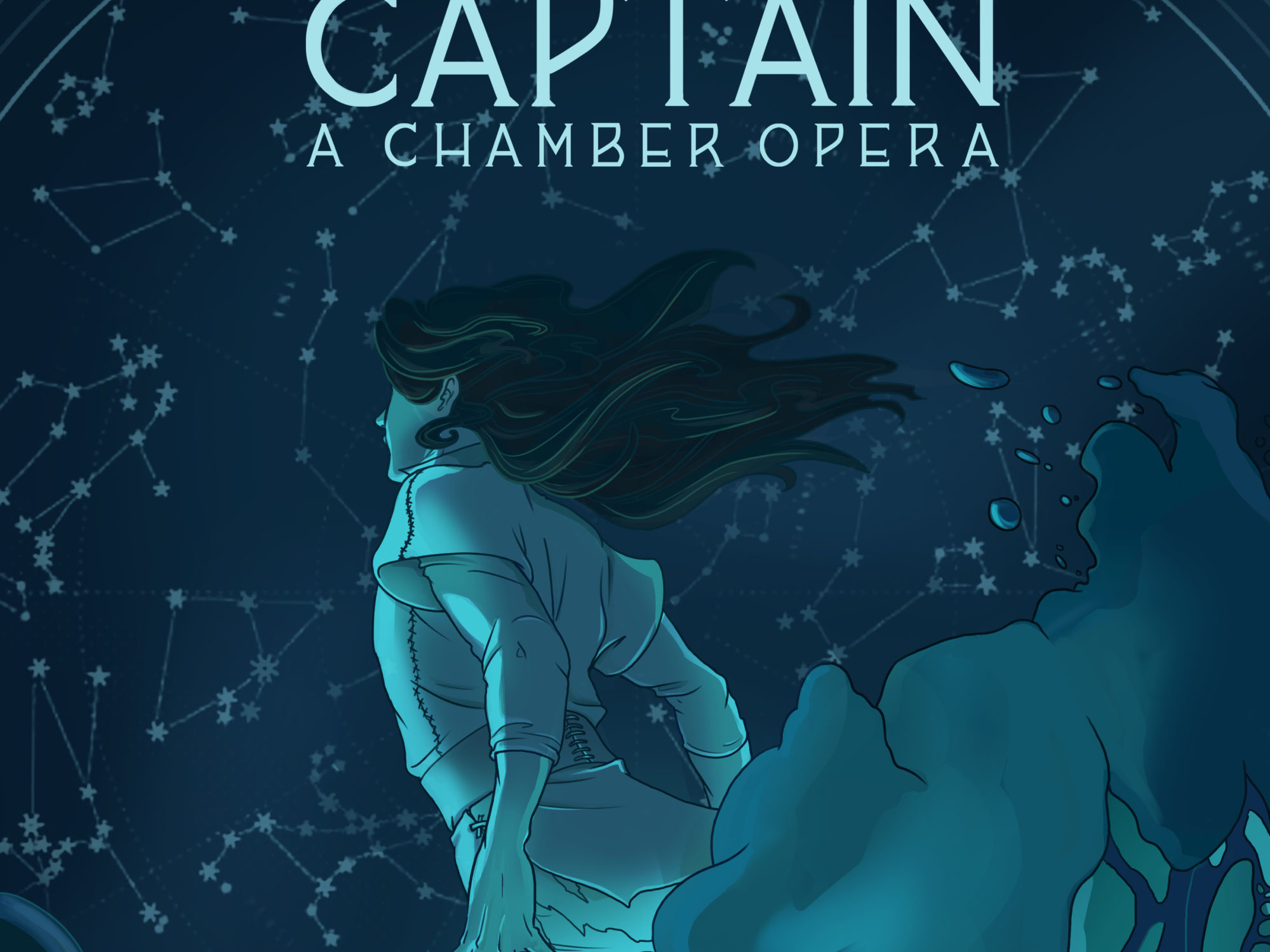Captain: a chamber opera (2018)
The sea is clear and storms lie winds away.
We rise on gently frothing tides today.
Orison, catch that tang, which bears the promise
of strange shores born here by distant wind?
Nemine, Act I, Scene 1
Captain is an hour-long chamber opera featuring contralto, baritone, soprano, and treble roles set against an ensemble of chamber orchestra (single winds, single strings, and celeste). The libretto is an original text that tells a coming of age story in an oppressive, impoverished society where a marginal living is made off of the ability to “call” the elements of wind and flame. This story examines the social implications of restrictive gender norms and subverts the trope of forced marriage that permeates the 500 year history of opera libretti.
Summary
Short: Young sailor Nemine wishes nothing more than to work on the sea forever, but is derailed from that destiny by her forced betrothal to a captain. She escapes this fate through the discovery of a latent power, sailing away from her home into an uncertain future of her own making.
Long: Sailing home from a long spell of fishing and trading, Nemine returns with trepidation for her future. Fellow shipmate Orison tries to reassure her and teach her the men’s art of calling the wind and his own prodigious skill of way-faring, navigation without instruments. Nemine is unable to succeed at either. She fears that one day soon, she will be made to marry and leave the sea forever. Once ashore, they visit her mother, who says she has been summoned to the Elders. Orison encourages her, believing that they will finally grant her captainship. They go, and Nemine’s mother, alone, reflects on the difficulty of raising a child like Nemine. She admits that she has asked the Elders to help her arrange a marriage for Nemine. Orison returns with the news that Nemine has been betrayed by the Elders: they tried to betroth her to a captain. However, she forcibly refused. In retaliation, the Elders restrained her and left her on outlying isle. Orison and Nemine’s mother make plans to visit her.
Later that night Orison brings food and light to Nemine, but she dismisses his help, since she can see he is not intending to help her escape. When he reveals how disturbed he is to see his beloved community and beloved friend pitted against each other, Nemine challenges him to trust her. He leaves and she settles in for the night, but her sleep is interrupted by a strange visitor, a young child, who Nemine identifies as the captain’s. They speak of motherhood and the nature of the sea. In the morning, the child is gone. Nemine’s mother arrives to tell her that she has renegotiated the betrothal: instead of marrying the captain, Nemine will marry Orison. Nemine is devastated though, because she knows a marriage to her will destroy Orison’s dream of having a loving family. Her mother presses her to see that she must submit to a life of caring for their children. Seeing no other choice, she destroys her ability to be a mother in the eyes of her community by cutting off her breasts. Her mother rushes to her side, cauterizing the wound, and brings her home.
As she recovers, Orison meets her walking by the sea. He tells her that, despite her wounds, the Elders have upheld their betrothal. She is unable to respond and seems almost hypnotized by the sea. She approaches it and waves swirl around her and Orison calls out to wake her. She realizes she has the power to call the sea as Orison calls the wind, and with it, the power to escape. They prepare a rowboat for her departure. As Nemine steps into the vessel, her mother catches them in the act of fleeing, and begs her daughter to stay. Nemine refuses. As Orison pushes her off, he asks to come with her. Swearing his allegiance to her as his Captain, they sail off into an uncertain future.
This working performance was given by Christine Jenora Duncan – contralto, Trevor Cook – baritone, Jessica Rossi – soprano, and Ashleigh Sizemore – soprano, with Maria Dossin conducting on June 9th, 2018.
